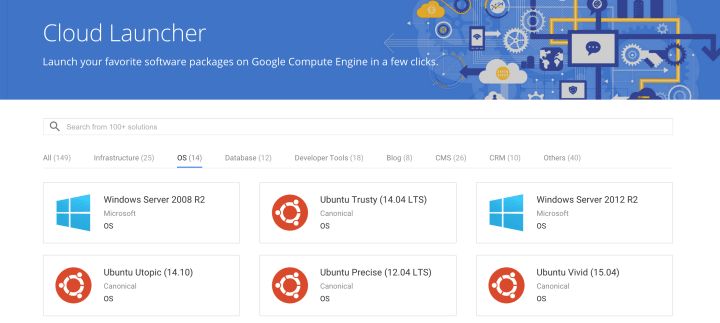Juju Support for Google Cloud Platform
Udi Nachmany
on 3 June 2015
 As you may have noticed in our release notes, the recent release of a stable 1.23.2 Juju core (and its 1.23.3 follow-on) is packed with goodies such as support for systemd (and Vivid), improved proxy support for restrictive networks, new charm actions, as well as a first run at Juju service leader elections – and the list goes on!
As you may have noticed in our release notes, the recent release of a stable 1.23.2 Juju core (and its 1.23.3 follow-on) is packed with goodies such as support for systemd (and Vivid), improved proxy support for restrictive networks, new charm actions, as well as a first run at Juju service leader elections – and the list goes on!
For public cloud users of Ubuntu, we are particularly excited to let you know that this version includes support for Google Compute Engine (GCE). If you’re a Google Cloud Platform user, you can now spin up, scale, and modify production workloads easily and quickly, with our market-leading, open source universal modelling tool, Juju. If you are already a Juju user and thinking about using Google Cloud Platform, you can take your magic over to them and get going in no time.
Configuring for GCE: https://jujucharms.com/docs/stable/config-gce
Juju 1.23.2 release notes: https://jujucharms.com/docs/devel/reference-release-notes
This ties in very nicely to the upstream work (here and here) we’ve been doing in the past months, to make it easy to deploy Kubernetes servers using Juju, even on cloud environments that are not yet supported by the Kubernetes project.
On a related note, if you’re using Google Cloud Platform you’ve probably taken a look at the sleek Cloud Launcher Google have released recently. And if you looked closely, you also noticed that you can now spin up your Ubuntu VMs using this very friendly UI.
 And at the time of writing, since the list is sorted by popularity, Ubuntu (unsurprisingly) has four of the top six spots.
And at the time of writing, since the list is sorted by popularity, Ubuntu (unsurprisingly) has four of the top six spots.
Talk to us today
Interested in running Ubuntu in your organisation?
Newsletter signup
Related posts
Native integration available between Canonical LXD and HPE Alletra MP B10000
Native integration available between Canonical LXD and HPE Alletra MP B10000. The integration combines efficient open source virtualization with high...
Why you should retire your Microsoft Azure Consumption Commitment (MACC) with Ubuntu Pro
Fulfilling your Microsoft Azure Consumption Commitment (MACC) requires efficient planning. Discover how allocating your MACC to Ubuntu Pro allows you to meet...
How to launch a Deep Learning VM on Google Cloud
Setting up a local Deep Learning environment can be a headache. Between managing CUDA drivers, resolving Python library conflicts, and ensuring you have...
